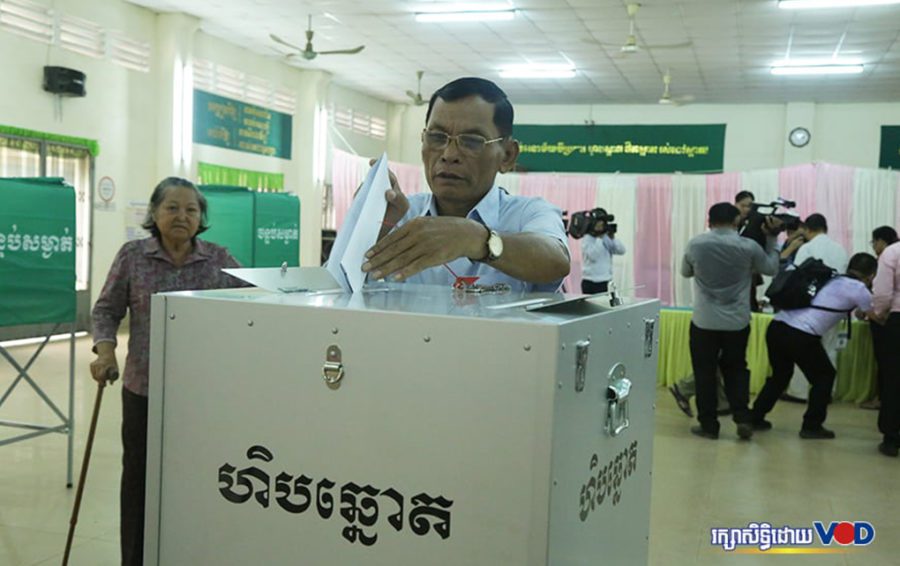Commune councilors voted to select district and provincial representatives on Sunday, with the ruling party predictably taking 92 to 100 percent of the vote in every province.
The main opposition Cambodia National Rescue Party (CNRP) was dissolved in November 2017 amid a political crackdown, giving up its 5,007 commune seats (about 43 percent) mostly to the ruling Cambodian People’s Party (CPP) — votes that would have counted toward the selections.
According to preliminary results released by the National Election Committee, the CPP received every vote in seven provinces, where it should therefore fill every seat at the district and provincial levels.
The committee has not yet disclosed how the more than 11,000 votes will translate to seats.
The CPP received its lowest share of 92 percent in the western Banteay Meanchey province, and 93 percent in Kompong Speu, Kratie, Oddar Meanchey and Siem Reap.
In Banteay Meanchey’s Serei Saophoan district, the CPP took a relatively low 75 percent of the vote, with the remainder split between the royalist parties Funcinpec and Khmer National United Party.
Sam Rainsy, former leader of the CNRP, called Sunday’s selection of provincial and district councilors a “fake election” because his party was barred from competing.
“This is the third fake election to take place in Cambodia following the arbitrary dissolution of the opposition CNRP on 16 November 2017,” Rainsy wrote on his Facebook page on Sunday.
The election of senators by local officials in February last year was the first, and the national election in July the second, he said.
“These three consecutive fake elections have allowed the ruling CPP to ‘win’ 100% of the seats up for grabs at all State institutions from national to local levels.”
National Election Committee spokesman Hang Puthea, however, defended the electoral process.
“The word ‘fake’ is just a word of politicians,” Puthea said.
The committee had “fulfilled its duty according to the law,” and “a speech made by a politician is a separate matter.”
“The NEC won’t let a speech from one or two individuals cause damage to the process of democracy in Cambodia,” Puthea said.
(Translated and edited from the original article on VOD Khmer)












